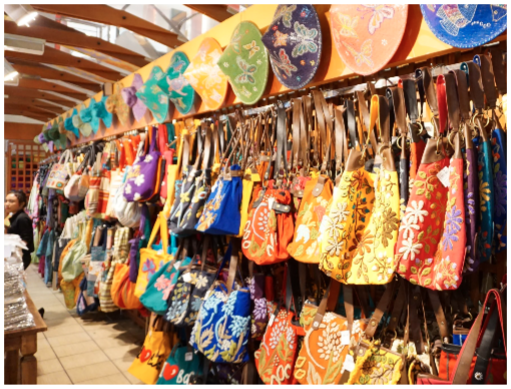Why Aren't Small Business Getting the Loans they need?

How Indonesia’s SMEs can get credit for exponential growth
Small Medium Enterprises (SMEs) play a vital role in the Indonesian economy, contributing close to 58% of GDP and employing more than 97% of workers, according to the International Council for Small Business.
But in developing countries like Indonesia, access to credit remains a significant obstacle for SME growth. Small businesses often lack sufficient collateral for loans, and Bank Relationship Managers often have to rely on character assessments and in-person interviews to estimate the sales and profitability of a small business. In many cases, sales and inventory numbers are ballpark figures based on what storeowners can recall. When they are recorded, they are often done by hand – posing further risks of lost or tampered records.
It is no wonder, then, that national banks continue to highlight that NPL (non performing loan) ratios for SME loans remain much higher than that of other loans in the bank.
Under the government’s Kredit Usaha Rakyat (KUR) scheme, the Ministry of Finance provides insurance for 70% of loans given to SMEs, with banks taking on the remaining 30% of the risk. In 2014, the six participating national banksprovided more than 11.3m SMEs with a combined Rp146.3trn ($11.2bn) of funding under the KUR program. Yet as of December 2014, Bank Negara Indonesia (BNI) reported that NPL rates in the small business segment were still almost double that of the secondary loans.
Many other banks retain even higher NPL rates for SMEs and find that processing small loans takes just as much work, if not more time than large loans that earn them more commission. Over time, some banks simply become discouraged from lending to SMEs at all. (*)
So how can SMEs gain back the credit that they need? Or if they already have the credit, how can they ensure that they are making that credit truly profitable?
Without accurate and reliable accounting of sales, inventory, cash flow and profitability – it is difficult for SMEs to make themselves creditworthy in the bank’s eyes. Many retail store owners struggle to keep track of all the moving parts: manual bookkeeping not only consumes much time, but requires enormous diligence and accuracy.
As with many industries, the solution is to go automatic. With an electronic POS/ERP system like Turboly, small business owners can easily keep track of their inventory, automatically record sales, gain a deep understanding of stock turnover and analyze ways that their cash is flowing.
This makes not only boosts the credit worthiness of small businesses, but also their customer service. Now, even small stores can keep track of hundreds of items and SKUs with ease. Corporations invest millions into installing ERP systems for the very same reason: it is the lifeblood of successful businesses. In the modern era, Fintech (financial technology) is moving faster than ever, and now sophisticated POS/ERP systems can be used on every level. With a reliable and automated system, banks can find small business loans attractive once more, and Indonesia’s SMEs can finally inject their businesses with much needed capital to see exponential growth.
For more info, contact our marketing team: [email protected]